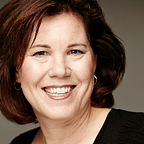Playing to Win at Writing
I am the ultimate fair-weather fan in every sport. I don’t follow any teams, or regular season play, but give me a World Series or a Stanley Cup or a Super Bowl or a US Open final and I am all in. I love the hype and the pressure and the do-or-die stakes of the big sporting events. I love the stories of the players and the way the media spins their tales of underdogs and overnight stars. I love the ads and the way people in the coffee shops and the gyms are all talking about the same thing as if it somehow matters who wins.
This was a banner week for fair-weather sports fans. The women’s World Cup soccer final was awe-inspiring in every way. It was summed up perfectly by a sportswriter whose work I consistently admire — Jason Gay of The Wall Street Journal. He wrote, “The players on this USWNT — they had their good days, bad days, laughs, letdowns, all of it. Some players said nothing. Others talked politics. Some talked trash. They could be profane. It was clear they weren’t in France to be an uplifting poster on the wall. They wanted to win — and they want future players to be paid better.”
They wanted to win.
It seems like a simple concept when you are involved in a sport like soccer at a world-class level. Their job is to win. Their whole reason for being out there is to win. They train to be fast and strong and strategic and smart and ready for performing on a world stage. But still, there is a mindset required. There is showing up, doing what is required, and there is really wanting to win.
Writers who wish to be published and read should want to win, too. There is a time for testing the waters and getting started and seeing how things go. But there is also a time to be clear-headed about the skills you need to build and the endurance you need to develop in order to reach your goal of writing a book that impacts your readers.
Writing to win.
There is nothing shameful about wanting that!
We don’t get trophies and confetti and our photos on the front page of every paper in the country. Winning for a writer means moving people who read our words. It means connecting with them on a deep level — seeing them, even though you have no idea who they might be.
Wanting that is a powerful and empowering thing, and sometimes we need to be reminded of that.
The other sports story that brought this to mind this week was 15-year-old Coco Grauff at Wimbledon, who took the tournament by storm when she beat one of her idols, Venus Williams. Most kids in that situation would be happy just to be out there, just to notch one or two wins, just to have a shot. But when asked what her plans were for the rest of the tournament, this is what Grauff said to the Mercury News:
“My goal is to win it…I think people just kind of limit themselves too much.”
It begs the question: are you limiting yourself in your writing life? Playing small?
Are you saying, “I’m just going to write this book and see what happens?”
Or “I just want to finish and not think about publishing.”
Or “I just want to publish and not think about marketing.”
Those are limitations, and we should learn from these inspiring sports heroes to set high goals.
To aim to win.
I find myself with this limited thinking all the time. Here’s an example: I have written a book called Read Books All Day and Get Paid for It: The Business of Book Coaching. I only just finished a draft of the text (which will also be available in a course called The Business of Book Coaching at Author Accelerator) and I have months of work to do to get it into publishable shape. But I find myself limiting my thinking, hedging my bets. I say, “There’s no market for people who want to be book coaches. This is just going to be a little project I do for myself. I’ll be happy if I sell a couple hundred copies.”
I am not writing to win.
I am not thinking big.
I am not giving my book the chance it deserves.
I am hereby declaring that I am inspired by the women’s soccer team, who won in such dazzling style — and by Coco, who did not, in fact, win this time, but whose intention was to win.
I want to win!
I want to teach thousands of people what I have learned about the creative process. I want to make a market for book coaching — for people who love books and stories to make money helping other writers bring their books to life. I want to be known as someone who transformed this industry.
Writing that makes me cringe but it also makes me feel good.
Why limit ourselves before we even begin?
